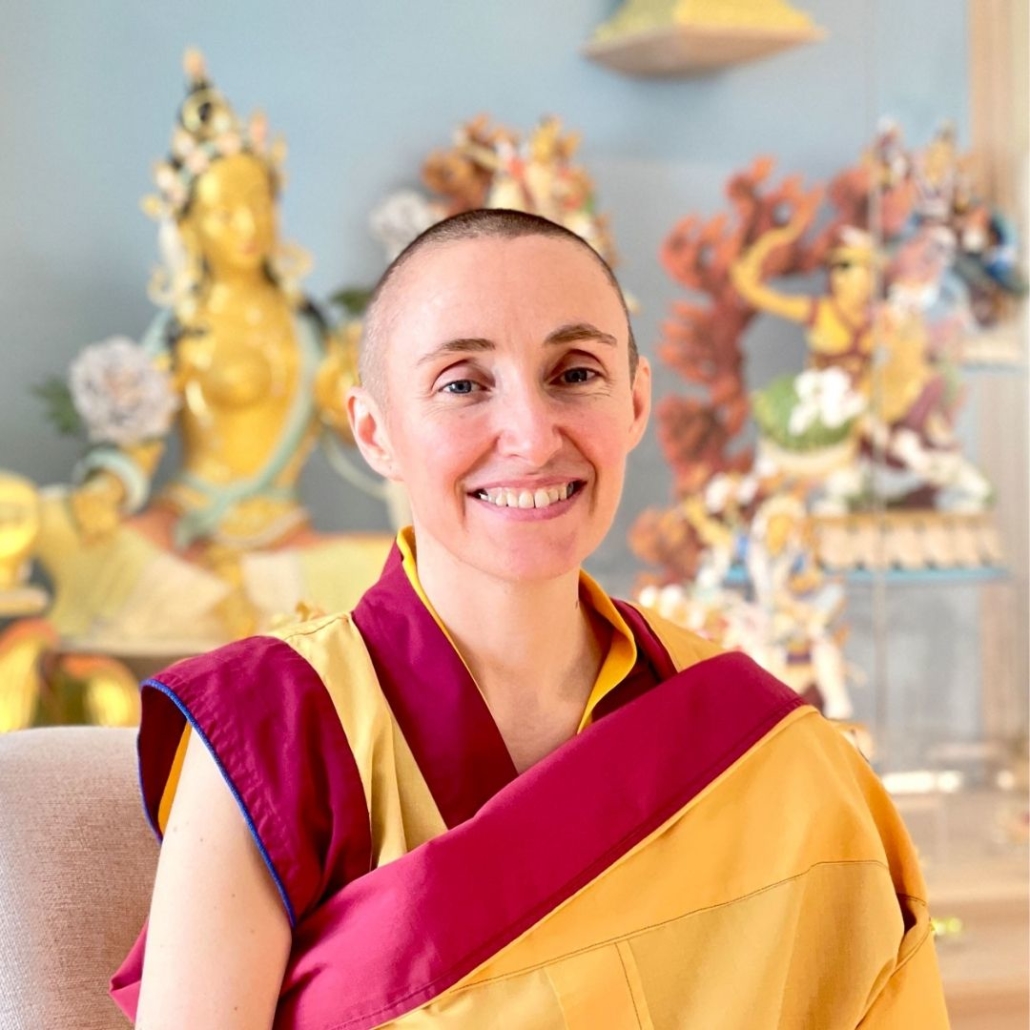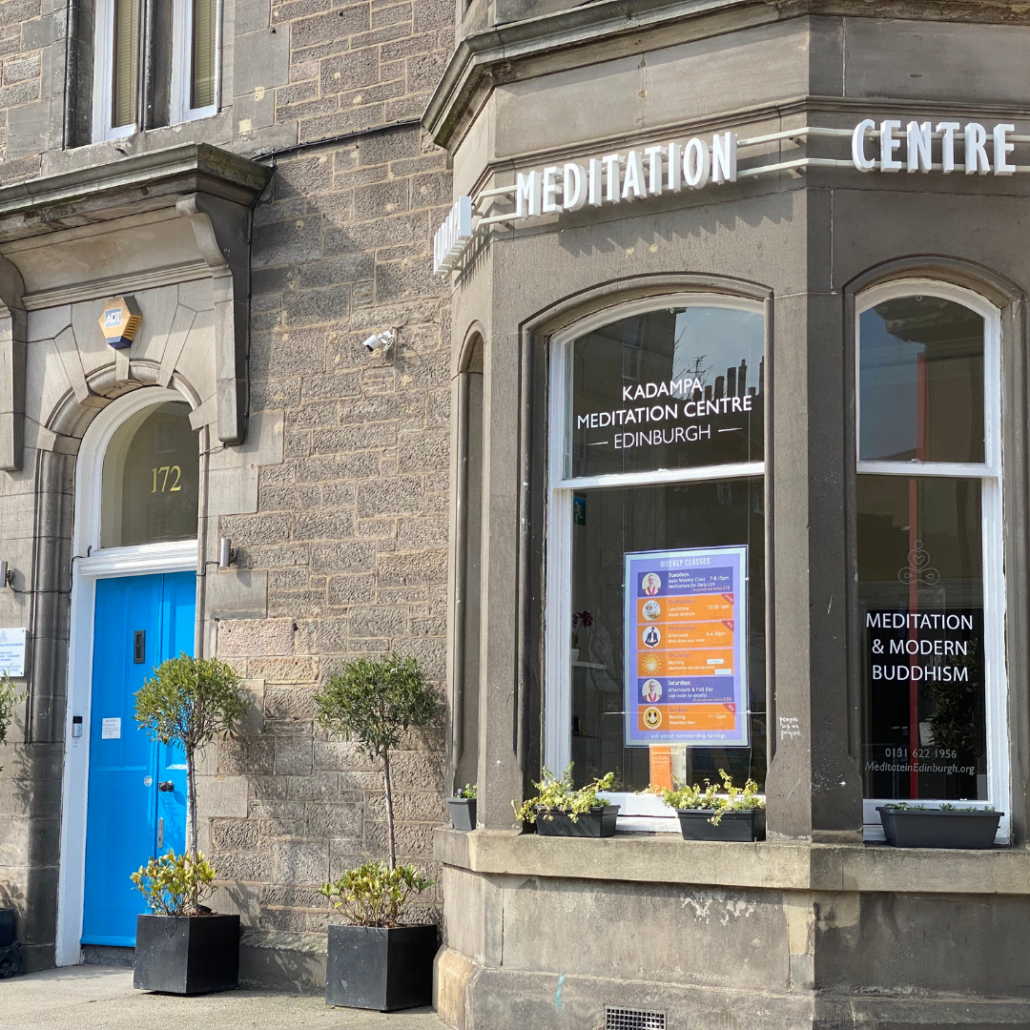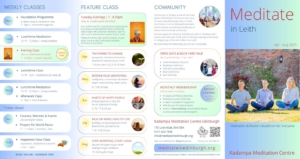NOURISHING OUR SPIRITUAL LIFE
jE tSONGKHAPA EMPOWERMENT weekend
with Gen Kelsang Wangmo

The Blessing Empowerment Weekend
Sat 4 & Sun 5 January
Join us for our annual blessing empowerment weekend and infuse your mind with wisdom, compassion and spiritual power. During the blessing Gen Wangmo will share teachings and guide us in a blissful meditation enabling us to make a special connection with the Wisdom Buddha, Je Tsongkhapa.
We will receive teachings on a special meditation practice of Je Tsongkhapa and on how to engage in a counting retreat. Please kindly note that empowerment day (4th January) is available in-person only (no livestream).
On Sunday we will then gain our own experience with a day of guided meditation, commencing our month-long January Retreat. Sunday is available both in-person and via livestream to Members.
Guru Sumati Buddha Heruka Counting Retreat
Sun 5 – Fri 31 January
Please follow this link for details of the opportunity to engage in the follow-on January retreat – everyone and all levels of participation welcome.
Schedule
Saturday 4th (in-person only; NO Livestream available)
Blessing Empowerment:10.30 – 12.30pm
Teaching: 3 – 4.30pm
Sunday 5th – Guided Retreat day (available in-person & by livestream to Members)
Session 1: 9.30 – 11am
Session 2: 11.45 – 1.15pm
Session 3: 3 – 4.30pm
Pricing
Weekend £40 or Sat only £25; Sun only £20
Members
Sat only £17, Sun No fee
More info to following on the fees for the January retreat.
What is an empowerment?
Who are all these Buddhas?
An empowerment is a special blessing ceremony where we are introduced to a particular Buddha.
So, first of all: there are lots of Buddhas. (I know that this is a foreign concept because my spell-checker keeps telling me that ‘Buddhas’ is not a word.) But in fact, it makes a lot of sense – a Buddha is someone who has completed the spiritual path by removing all their imperfections, and Buddha Shakyamuni (the founder of Buddhism) taught that we all have the potential to achieve this. If it’s possible for everyone to become a Buddha, it would be a bit depressing if there was only one! Over the last 2,500 years, lots of people have followed the spiritual path to its completion, so now there are lots of Buddhas. They have all been where we’re at, and know how hard it can be; so they make it their mission to help us achieve happiness too.
Looked at from another point of view, the different Buddhas all represent different aspects of the enlightened mind. The mind of enlightenment, which we aspire to, has many qualities, such as love, compassion, and wisdom. So if I want to emphasize developing compassion, for example, I might make requests to Avalokiteshvara, who is the Buddha of compassion: helping others become more compassionate is his speciality. Or to improve my wisdom, I might try to get to know Je Tsongkhapa a bit better.
Getting to know the enlightened beings
Imagine you’re at a party full of amazing people you’d really like to meet; it’s a lot easier if you know someone who can introduce you, isn’t it? This is what happens at an empowerment. The teacher who is granting the empowerment prepares by doing a focused retreat to make a strong connection with a particular Buddha, then they use that special connection to form a bridge between Buddha and us.
The empowerment ceremony itself usually lasts about two hours, and can be seen as a long guided visualization. There are some prayers and rituals, but the teacher talks us through what is going on and explains what we should feel or imagine.
An empowerment bestows upon us special blessings that heal our mental continuum and awaken our Buddha nature.
~ Mahamudra Tantra by Geshe Kelsang Gyatso
Can anyone come to an empowerment?
Yes: you don’t need to know what’s going on, you just need an open mind. To be quite honest, no-one really knows exactly what is happening during an empowerment – it’s one of those cases where feeling is more important than understanding. You just have to try it. Maybe you’ll come out a bit confused, but you will almost certainly come out happier! Then, in the afternoon and maybe also on the following day, the teacher will give some explanation about the Buddha we’ve just met and we can increase our understanding.
A little bit about Tantra
All empowerments are part of Buddha’s Tantric teachings. There are different levels of Tantra, from Action Tantra up to Highest Yoga Tantra, but they all have the same basic purpose: to get us to enlightenment quickly through harnessing the power of imagination. We train in stopping our ordinary way of thinking about ourselves and instead create the mental image of ourselves as an enlightened being. In Mahamudra Tantra, Geshe-la says:
In Tantra, the principal objects to be abandoned are ordinary conceptions and ordinary appearances. The terms ‘ordinary conceptions’ and ‘ordinary appearances’ are best explained by the following example. Suppose there is a Heruka practitioner called John. Normally he sees himself as John, and his environment, enjoyments, body and mind as John’s. These appearances are ordinary appearances. The mind that assents to these ordinary appearances by holding them to be true is ordinary conception. The appearances we have of an inherently existent ‘I’, ‘mine’ and other phenomena are also ordinary appearances; self-grasping and all other delusions are ordinary conceptions. Ordinary conceptions are obstructions to liberation, and ordinary appearances are obstructions to omniscience. In general, all sentient beings, except Bodhisattvas who have attained the vajra-like concentration of the path of meditation, have ordinary appearances.
Now if John were to meditate on the generation stage of Heruka, strongly regarding himself as Heruka and believing his surroundings, experiences, body and mind to be those of Heruka, at that time he would have the divine pride that prevents ordinary conceptions. If he were also to attain clear appearance of himself as Heruka, with the environment, enjoyments, body and mind of Heruka, at that time he would have the clear appearance that prevents him from perceiving ordinary appearances.
An empowerment is the first step on this path of transformation. When we receive an empowerment, the gateway to Tantra is opened and we can, if we wish, engage in the meditation and prayer practices that lead to enlightenment quickly; or if we prefer, we can just enjoy the blessings and feel the benefit of that inspiration in our daily practice.

THE TEACHER
Gen Kelsang Wangmo has been studying and practising Kadampa Buddhism and ordained as a nun for over 20 years. Loved for her gentle and joyful approach and her sincere example, Gen Wangmo’s lighthearted yet profound teachings provide practical wisdom for modern daily life.

THE VENUE
Kadampa Meditation Centre
Edinburgh
172 Leith Walk,
EH6 5EA
TRAVEL
Paid Street parking is available in this area.
The nearest Tram stop is Balfour street and the Centre is a 5 min walk.
Buses 16 & 25 also stop near the Centre.

